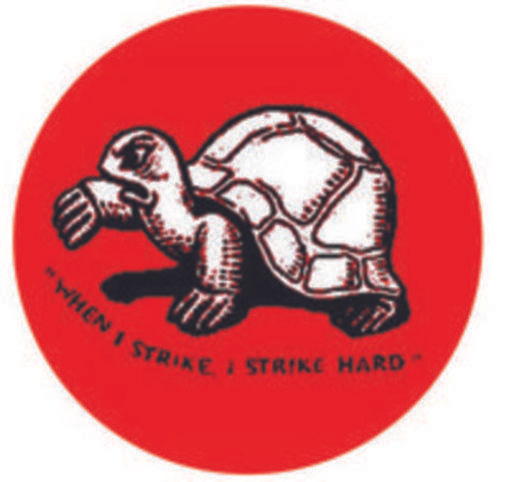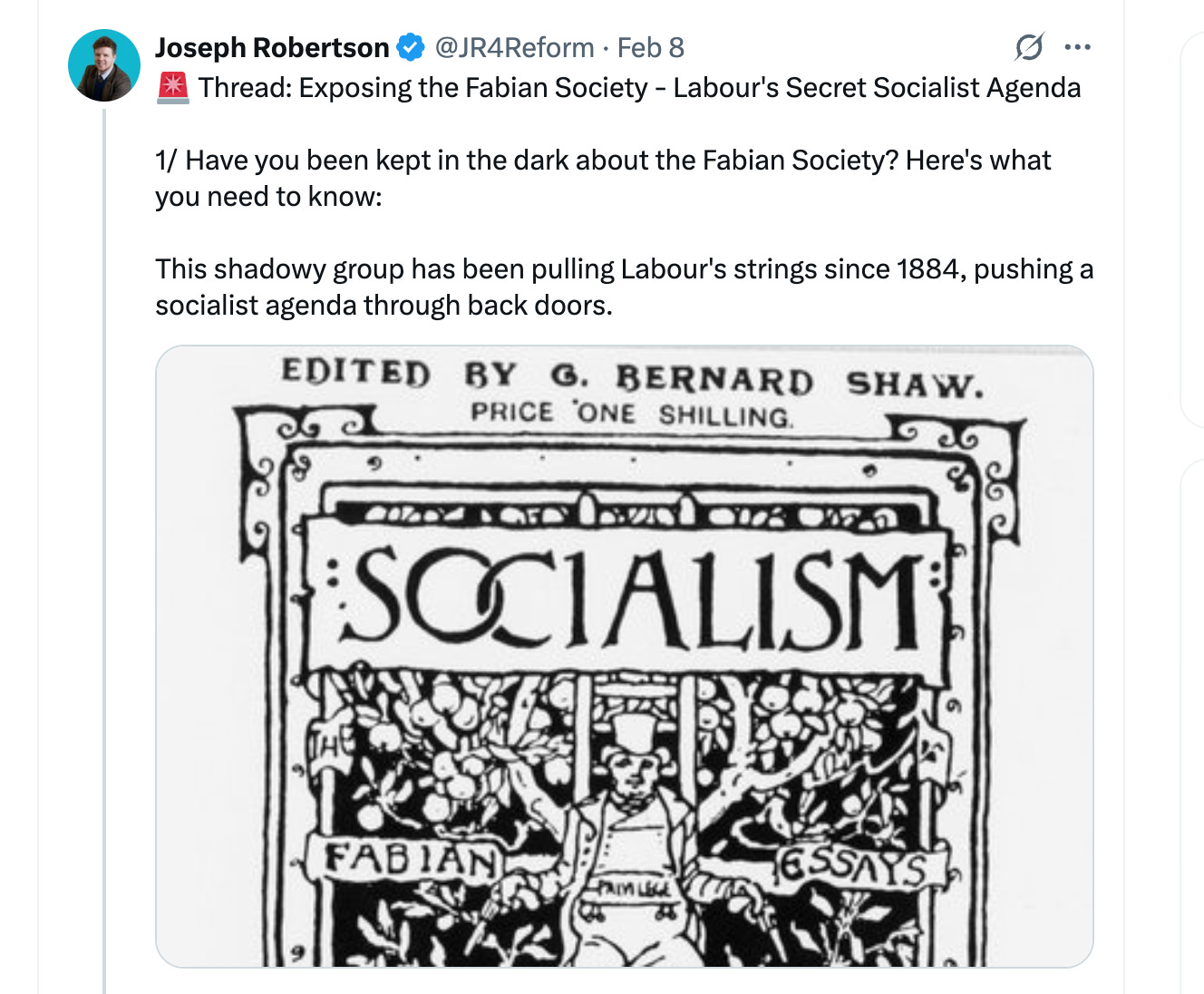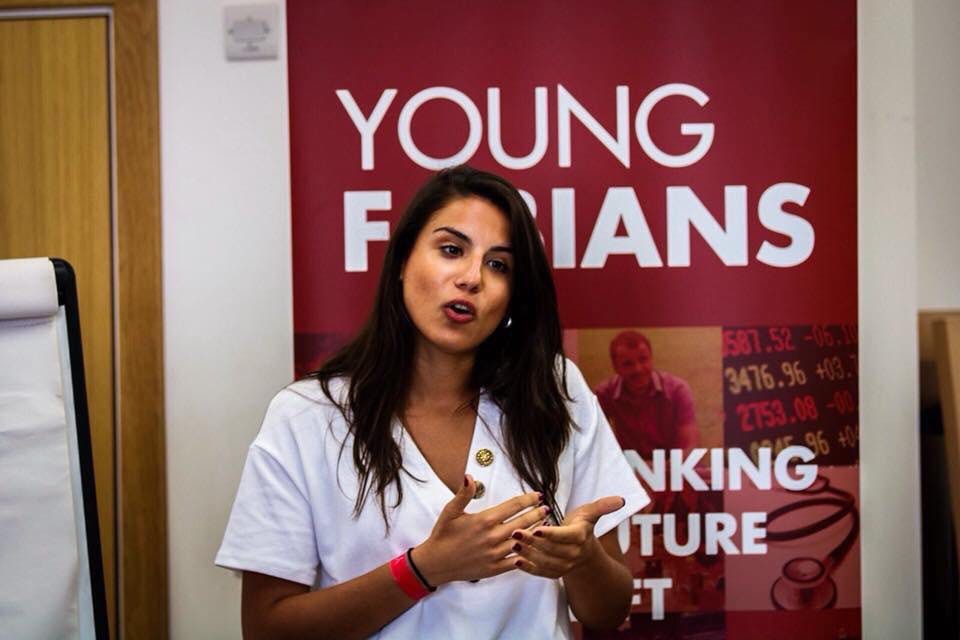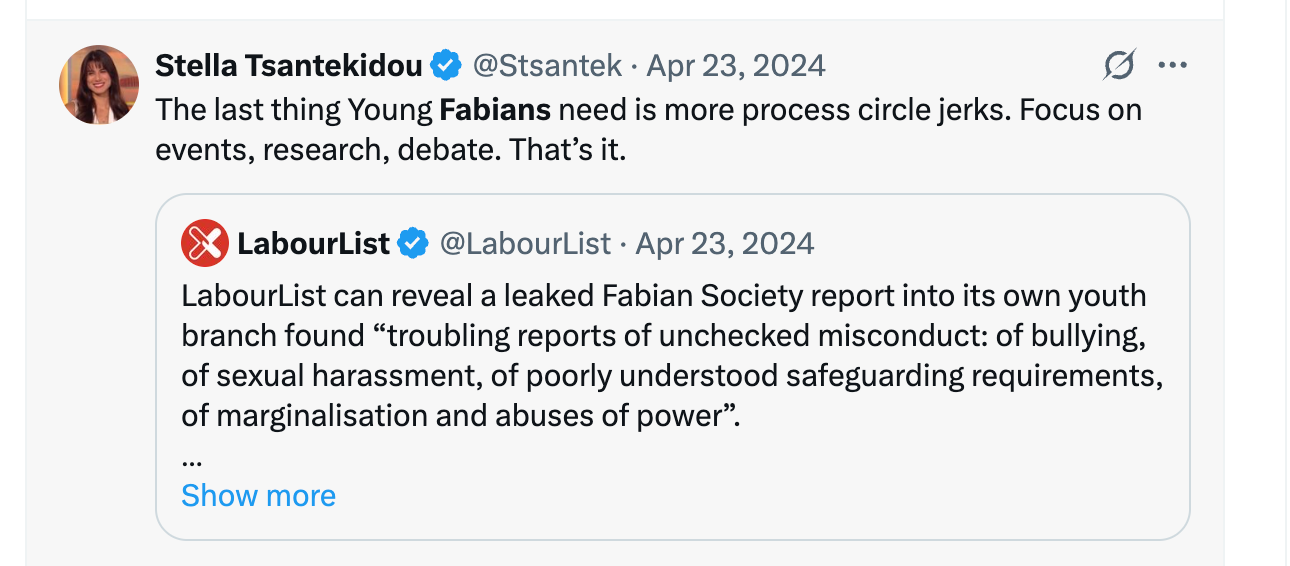5 ways to take the Fabian Society from toothless fake-masons of the Left to Peter Hitchens's Trotskyist Prophecy
The long march through the institutions is a compliment actually
I wrote last week about the Dominic Cummings-shaped hole on the left and the need for intellectual mentorship and talent. In that vein, I am now writing about exorcising my alma mater: the Fabian Society.
Why are you so obsessed with us?
The Fabian society got attention last year because Keir Starmer is a member and does not have an obvious political hinterland (very Fabian of him), and the media needed to explain what he believes in. Also, Fabians are perfect for online right-wing grifters to produce ChatGTP slop threads about a grant club of stealth communists.
As much as I would love to be involved in such a powerful group, the modern Fabians are nothing more than a nerdy cohort of the Labour Party who come together to do what Labour Party apparatchiks have excelled in through the aeons: debate, drink, and argue over rules and process.
For the left (within and outside Labour), Fabians are soulless wonks who favour establishment-friendly policies over transformative change. Novara Media wrote an article titled “Keir Starmer’s Betrayal of Workers is Nothing New for Labour,” arguing that the Labour Party’s foundation included the Fabian Society alongside trade unions, foreshadowing Labour’s tendency to prioritise social order over militant worker action. They are correct. While, unlike the Blairites, we still fancy ourselves socialist, we would rather let eggs rot than break them to make an omelette.
Indeed, Rule 4 of our constitution makes us Trotskyist-proof. We call it a “self-denying ordinance, " meaning no faction can take over and start sending motions to the Labour Conference. Hence, it remains a safe space for quiet nerds:
The party’s right (Blairites) sees Fabians as malleable and useful but to be monitored for silliness and contained with a firm hand of discipline—perhaps that is why so many of them are members.
In their own words:
“I joined the Young Fabians to try to take over the world, and all I got was a lousy Seven Socialists mug.”
“The Fabians is where the nerds of the Labour Party come together to make friends with one another. More cuddly than cunning.”
“Some absolute wankers but the focus on policy/politics filters out the chancers and most of the careerists.”
“Considering it connected some of the greatest literary minds of our time and has that historical legacy aspect, it still has a pull for young people wanting to develop their political education.”
“At best, it’s a training ground to figure out if you’re interested in policy and start networking in the right circles - it can also be a way into the weird, narrow social circles. At worst, it’s an extension of the NUS, but with even less social skills and relevance.”
“We don't actually talk about politics enough in politics; Fabians is one of the few places we do.”
“Unlike other political groups, YF at least used to be a place where you could explore ideas and bring people together in a creative way that wasn’t already set out so strictly. This is why you used to get more normal and nuanced political views and people getting involved, and we all found real friends and connections through it. I’m not sure it’s still like that after the rule change. Maybe they all work in politics now anyway. The actual Fabian society is so innocuous at this point it’s a bit pointless. If anything, it should aim to be more sinister and influence the party more. It’s mad that they had Keir on the committee for years, and I can’t see which policies he’s actually taken from them. There are always some characters alongside, but I think they only helped bond us stronger together to oppose them.”
“I joined the Fabians because as a freshly recovering alcoholic learning social skills sober for the first time, it was like a halfway house back into regular society.”
“The nice nerds make up for the cunty cunts.”
The long march through the institutions
Let’s analyse the conspiracy Fabianism fits into…
I recently listened to an episode of the Origin Story podcast on cultural Marxism. I thought it was an observed phenomenon, but apparently, there is a distinct far-right antisemitic conspiracy theory that claims Jewish western Marxists orchestrated modern progressive movements, identity politics, and political correctness as an effort to subvert Christian values.
The concept sounds identical to what Peter Hitchen raves against. I have not finished his polemic ‘The Abolition of Britain’ yet, where he expands on the ‘cultural revolution’ he believes the UK has gone through since the 1960s, but I stumbled across this interview he gave to a Slovakian paper in which he explains some of the origins.
Hitchens tells us that the origins of this stealth Socialism (be it in the conspiracy theory of cultural Marxism or the real-life milquetoast policy focused Fabianism) start with a conflicted Gramsci returning from the Soviet Union; Experiencing soviet life, he realised that prosperous, Christian nations would never accept socialism in that form. “He saw that to obtain a revolutionary change, you first had to obtain control of the culture.” Gramsci saw the power of the cultural revolution in Paris, which “ultimately was a revolution about sex and drugs and rock and roll. And both events in 1968 set the intelligent Left into thinking: We need to change how we approach the whole business of revolution.”
So what you’re saying is that the people we have today on the Left – in the UK’s Labour Party and presumably throughout the European Union – their roots are basically in Marxism but of a different sort?
The clever ones, yes. It’s a much more intelligent Marxism – and also a much more subtle Marxism than Lenin’s naked seizure of power by vanguard party plan.
Hitchens goes on to say that Marx was utterly obsessed with the French Revolution and that in his writings on the Paris Commune of 1871, his true lodestar was not the mere act of seizing or nationalising industries but the total transformation of a nation’s culture, including the overthrow of Christianity. If you want to change mankind, you must eliminate the notion that man is created in God’s image- what is called the Helvetius heresy -and this is why the revolutionaries of 1871 went so far as to set up the guillotine and carry out Fouché’s dechristianisation, with prostitutes on church altars, churches closed, and priests driven from their livings. According to the great Hitch, Marxism is, in effect, an attempt to codify that very French revolutionary spirit, which today has been re-codified as “woke” and political correctness—a pseudo-religious movement whose own journalistic flourish is captured in Marx’s description of the Communards “storming heaven.”
I can’t tell whether he is pulling our leg or being serious, but he claims that Jeremy Corbyn is a lesser Trotskyist than Starmer because he could not hide his radicalism, having been deeply involved in London Labour local government politics and trade unions, Keir Starmer conceals his modern cultural revolutionary Trotskyism -developed, he notes, by figures like Michalis Raptis (whose nom de guerre “Pablo” he cites) and his “red-green combination” of the cultural revolution and what we now call Net Zero—behind a bland public demeanour. Hitchens says that this hidden radicalism means Starmer is, in some respects, further to the left than Corbyn, even if Corbyn’s open militancy made him a lightning rod. He recalls that even Tony Blair admitted his own secret Trotskyist past on radio, an admission Hitchens claims few are willing to explore because, as he puts it, people do not understand politics.
I hope he equally claims that Nigel Farage is a Nazi because when he was a student at Dulwich College ( a paid posh British boarding school), his teacher reported him to the headmaster for marching through a quiet Sussex village very late at night shouting Hitler youth songs.
So, given that some people believe radical socialists are pretending to be moderates, it makes sense for them to look at the Fabians suspiciously. Even within the left, the suspicion is usually the opposite: you are a liberal wet pretending to be a comrade. I will give Fabians’ background below, skip to the state of society, and my recommendations if you already know it.
What is the Fabian society, and how does it influence the Labour party?
The Fabian Society, founded in 1884, is Britain’s oldest political think tank and socialist organisation. The society’s name comes from the Roman general Fabius Maximus (nicknamed “Cunctator” or delayer), symbolising a slow, patient approach. Early Fabians like Sidney and Beatrice Webb, George Bernard Shaw, and Graham Wallas explicitly rejected Marxist calls for sudden revolution, advocating a “gradual transition to a socialist society” through incremental reforms within democracy instead.
‘The long march through institutions’ is a slogan that came long after the Fabians were established, coined by socialist student activist Rudi Dutschke around 1967 to describe his strategy to create radical change in government by becoming part of it. It has echoes of Gramschi’s "war of position", but by now, one would argue it is an established way for all political entities to influence government in democratic countries, be it conservatives, socialists, feminists, free marketeers and libertarians, techno-optimists, anti-racists etc.
The early Fabians had a “wolf in sheep’s clothing” coat of arms to jest that they would infiltrate and influence society from within. It has since been dropped, much to the dismay of Prince-of-Darkness-aspiring Labour neophytes.
This philosophy of quiet permeation of existing institutions and evidence-based policy change has since been known as Fabianism. No other think tank has an “ism” of its own. In 1900, the Fabians joined trade unions and others in founding the Labour Party, and the Society has been formally affiliated with Labour ever since. In Labour’s early years, Fabian intellectuals heavily shaped the party’s platform—Sidney Webb drafted Labour’s 1918 constitution (including the famous socialist Clause IV commitment to common ownership).
Are Fabians Controlling Labour Policy?
Fabian pamphlets did appear before many historic major reforms—proposing a national minimum wage as early as 1906, a national health service by 1911, and abolishing the House of Lords’ hereditary principle by 1917. By the post-WWII era, people again thought the Society’s influence was pervasive because over 220 MPs in the 1945 Labour landslide were Fabian members, prompting observers to quip that the Parliamentary Labour Party looked “like an enormous Fabian school.” Every Labour Prime Minister has been a Fabian Society member, from Ramsay MacDonald and Clement Attlee, through Harold Wilson and Tony Blair, to Gordon Brown. Then again, every Labour MP has been a member of a Union.
It is flattering to think the Fabian Society is Labour’s intellectual engineroom, embedding gradualist socialist ideas into the party’s DNA. But the reality is that the Fabian Society’s status waxes and wanes according to its membership. When active members win party elections, we are seen as more influential; when we lose, we are seen as extracurriculars for losers.
For example, the urban legend is that Peter Mandelson was on our national executive, and during Labour’s modernisation in the 1990s, the Fabians were considered major players. A senior member told me our reports tested the shift to “one member, one vote” in party elections and the rewrite of Clause IV under Tony Blair.
When Keir Starmer was elected to the leadership, the Fabians found their groove again. Fundraising became easier because the leader and half the Shadow Cabinet were members. In September 2021, Starmer chose the Fabian Society’s platform to publish “The Road Ahead,” a 35-page pamphlet setting out his vision for Britain’s future and Labour’s values (much like Blair had done with Third Way).
Formally, the Fabian Society is one of several “socialist societies” officially affiliated to Labour, meaning it could send motions to Labour’s annual conference if its constitution did not prohibit it and contributes to policy consultations within the party. Fabians work closely with Labour politicians for research, often partnering with Labour-affiliated trade unions or with MPs who act as report sponsors. Frontbenchers regularly appear at Fabian events and can request Fabian research on specific policy issues (e.g. Wes Streeting and social care). Informally, the sheer overlap of personnel and ideas creates a feedback loop: Fabian people frequently move into Labour roles (for example, the Fabians’ former research director was snapped up by Keir Starmer’s office in 2020).
The Society’s ebbs and flows – and My Personal Experience
During the Corbyn years, the society diminished in prominence with the PLP and the broader membership, which became more obviously left-wing. After the 2019 elections and change of leadership, it became advantageous for Labour MPs and activists to support the line that we are a changed, professionalised party that advocates growth and building; during the Corbyn years, it was advantageous for them to signal radicalism and purity of left-wing credentials. The place to do that was not the Fabians, so we were diminished in size but a safe space for those not looking to pledge allegiance to a faction.
I joined the society at the beginning of the Corbyn years, almost by accident rather than intention and awareness of all the above. Indeed, eventually, I worked for Corbyn’s inner circle in Parliament. I was fresh out of university and dreamed of working in Parliament. I had campaigned for Labour during the EU/local and the General Elections but, apart from that, had no party links to speak of. As a still recent migrant, I was piecing together my rebirth as a British politico. I heard of the think-tank-y membership organisation and piled it on the many activities I was already doing to prove to MPs I am an employable Labour person in the know who speaks their language.
I attended a panel event in Parliament but was unsure how to connect, so I just lurked in the back like a weirdo and left at the end without speaking to anyone. Eventually, I signed up to the Young Fabians Law network, as I had just graduated with a law degree, and the then chair, a feminist “ask her to stand” type, beckoned me to stand as Secretary. I was embarrassed by the mere suggestion because I had no experience. She had none of it, put my name forward, and the rest is history.
The year after, I ran as Chair and won against a guy with no legal background and whose first Law network meeting was on the day of the elections. I realised “ask her to stand” feminists have a point. I beat the same guy the year after for the National Executive Committee, despite him orchestrating a slander campaign against me (he told people I am homophobic because I said there is a clash of civil and religious rights in the case of the bakers in the USA whom the Supreme Court found did not have to produce a wedding cake for a gay couple’s wedding).
I spent a year on the Fabian Women Mentoring scheme, a wholesome programme that has raised a generation of female Labour politicians. Even if it lacks the bite I crave from any training programme, when people ask me how to get more women involved in anything, they can’t go wrong with how we do it in the Labour Party- forcefully and with full support.
After that, the youth wing of the society combusted into flames and did not recover for many years. I wrote a letter to a young Fabian after discovering they were shut down last year after another kerfuffle of bullying and harassment allegations from the new crop who failed to absorb the correct lesson from their predecessors: do not use process to stifle competition.
In 2017, it was the beginning of peak culture wars, and the industrious in our midst realised that the most effective way to take out your political enemies was to cancel them. A common tactic was to scrape social media for slurs and find people willing to confess to bullying and harassment against one’s desired enemy. Our unsaid manifesto pledges were to correct, stifle, discipline, humiliate, and expel. We spent hours discussing the proper wording for a ‘safe space’ proclamation to be read before every meeting in what can only be described as a circle jerk of sanctimoniousness.
We mostly despised each other, but we also made friends for life. I met my flatmate in the Young Fabians. I spent the 2024 elections campaigning for YF friends running for Parliament. At the time, the society was a refuge for the lesser radical—unsuited for Momentum but no Blairite even with a suit on—so unsuitable for Progress (now rebranded as Progressive Britain). Most Fabians see ourselves as ‘soft left.’
As a result, my time in the Young Fabian trenches was not productive in terms of my intellectual development, but it was instrumental in helping me understand the party and its culture and make connections.
My main suggestion is this: rather than ignoring the conspiracy, we should embrace it.
The long march through the institutions is an excellent concept- indeed, it is what all political factions are doing in democratic societies because it means we agree we value democracy above all else; despite its faults, we’ve seen the alternatives on the left and the right, and we reject them. Hitchens constructs a view on Marxism that is focused on culture, but for many left-wingers, that couldn’t be further from the case. I am a small 'c’ conservative, and my socialism derives firmly from my Christian values: tolerance, forgiveness, love of my neighbour, love of the stranger, equality, and sanctity of human life. But to want to achieve all these through a gradual shift in societal culture and government policy is a cross-party ideal.
So how do we do it?
A Labour staffer asked me the other day what the point of the Fabians is anymore. If you ask, most SW1 warriors cannot name a Fabian staffer. They have become irrelevant by being internally focused- an accusation you can elevate to many Labour adjacent groups. Compare that with many other right-wing think tanks. He send me the following screenshot from the latest Fabian Review to illustrate his point:
Apologies to Patrick, my DMs are open for any complaints. There are ways to editorialise material to make it appealing, even on small potatoes issues.
Here is what I propose we do:
Rebrand:
Be proud and loud about who we are and what we stand for. Define what we stand for publicly. At a time of populist hysteria and authoritarian melancholy, what can we learn from the Fabians?
Bring back our coat of arms. It is funny and charming, and DAMN STRAIGHT, we should be wolves in sheep’s clothing. WAKE UP SHEEPLE! It would send social media into a MELTDOWN. I would be immediately summoned into GBnews to reassure the crypto-fasc that we are not orchestrating a communist uprising.
Print merch and sell it at the Labour Party conference. We could make money if we created some youth-forward, fun items, especially with our tongue-in-cheek coat of arms. The YOOFS would love it.
Active thought leadership, not NPCs:
Be relevant: I say this with love and respect and understanding that reports require funding, and pensions funds have that in spades, but you cannot be possibly looking at politics in the UK today and thinking a socialist think tank should have a report on pensioner poverty on its homepage. If I was a young person hearing of Fabians for the first time and saw this, I would be running for the hills. Especially when not once is it suggesting we need to drop the triple lock, as I wrote last week, which everybody knows we do.
The hot topics are energy, especially nuclear, planning and building, intergenerational fairness, falling birth rates and immigration and asylum reform. EU integration, re-industrialisation and re-armament are practically very important also, if less interesting to a broad audience. Most of these are nowhere to be found in the current projects. Nowhere do I see any keywords that drive political debates in the most interesting policy spaces I know. For example, ‘growth’ is on every policy wonk’s lips, why not on the Fabian website?
Quality of policy dissemination on social and traditional media. Society has been posting outdated and easily rebuffed policy platitudes that lack inspiration and sophistication. If we are interested in ambitious talent we need to make them feel they can discuss cutting edge policy.
Be an actual secret society:
The trolls are doing us a favour; being secretive sounds sexy to the ambitious outsiders we want to attract. Organise private dinners and meetings with influential figures on the left to discuss difficult topics like Welfare reform, the ECHR/Convention of Refugees and immigration, pension’s triple lock, non-doms and tax loopholes, re-militarisation and unhooking from the American tit, net zero, renewables and nuclear energy, trade wars and EU integration. Anything that we’d best agree amongst ourselves in private before we pick a bitch fight in public.
Active media narrative infiltration:
Fabians have a pamphlet for possibly every issue under the sun. Every time there is a new government announcement or global event, there could be press releases framing it through the prism of Fabianism. Many smaller organisations do it to punch above their weight. Explain it to an intern once and then give them a target to do this twice weekly.
Audiovisual social media. I believe we’ve tried podcasting before, and it is arguably a hard market to break into, but I would say it is a better use of the youn time to be’ time to be tasked with producing content rather than re-drafting codes of conduct.
Create a media champions network. There is no reason why political commentators like myself who regularly appear on TV and radio cannot ask to be identified as Fabian reps when relevant and be given lines on campaigns.
Get rich:
Look at this:
We make 2K from publications, but almost the entire homepage of our website is three identical images that link to 80-page PDFs.
A third of the revenue is from events, and they are not even on the homepage. When you click on events, it only shows one from two months ago. People are talking about those shady Fabians, but then they go on our website, and there is no way for us to make money off of them. On top of having our sales of event tickets prominent, we should also start selling branded merchandise (preferably with the WOLF SHEEPLE emblem).
Fundraising is a central problem because we have not capitalised on our institutional history. The IEA, ASI, and other right-wing think tanks have more commercially ludicrous players supporting their causes, but that doesn’t mean we can’t expand beyond trade Unions. Why are the other better than us? They have a more distinct identity and visible impact. It is a chicken-and-egg situation, but who would splash the cash if we were non-entities?
Rebrand, rearm, rejoin the frontline.
PS I am petitioning the Fabians to re-embrace the WOLF SHEEPLE coat of arms. Comment below if you want to join my campaign.

















Re Fabian staffers, Sasjkia Otto is doing some very interesting work on AI & the world of work.
Brilliant and vividly informative, as always. As a political layperson, I've only ever heard of the Fabians as a vague background society without any of the verve, charisma or fascination they should be owning and showing off.